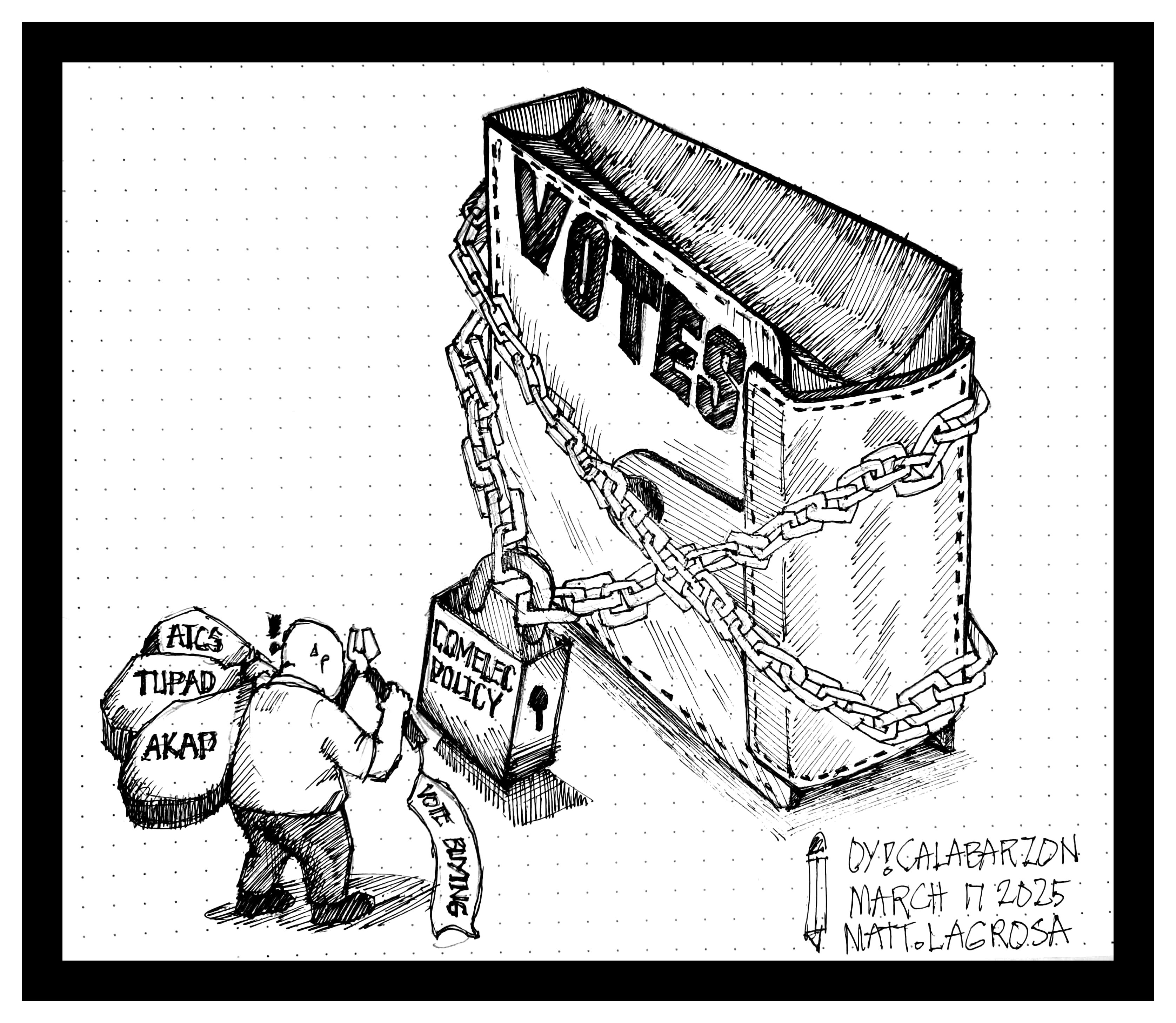In the old days, candidates wooed the voters by giving small and cheap items like T-shirts, fans, and merienda.
But soon, these methods have turned obsolete, as voters become more and more demanding and candidates are goaded into giving more and more.
In this coming May 12 midterm polls, the Commission on Elections (Comelec) has admitted that they are once again facing the challenges that the vote-buying tradition brings.
But this time, the poll body is ready with its own new ways of coping with the problem.
In fact, Comelec Commissioner Ernest Maceda, head of the Committee on Kontra Bigay, said they will intensify their efforts against the evolving tactics of vote-buying.
The trouble is we have heard this before. Every election campaign for the last 60 years or so saw some form of vote-buying perpetrated by candidates who will stop at nothing to ensure victory.
Undaunted, Maceda said the Commission will stop the rise of a new form of purchasing votes, where candidates, especially those in office, use social services to influence voters.
Although the Commission earlier allowed the Department of Social Welfare and Development (DSWD) to distribute dole-outs to the poor during the election period, this policy had been qualified by the poll body.
Maceda stressed that the Comelec will prohibit the distribution of welfare aid within 10 days before election day.
This means the giving out of Assistance for Individuals in Crisis Situation (AICS), Tulong Panghanapbuhay sa Ating Disadvantaged/Displaced Workers (TUPAD), and Ayuda sa Kapos ang Kita Program (AKAP), etc. will be temporarily halted on May 2, 2025.
The Comelec may be praised for this move.
#WeTakeAStand #OpinYon #OpinYonNews #Editorial #PreventingVoteBuying #AKAP #tupad #AICS
